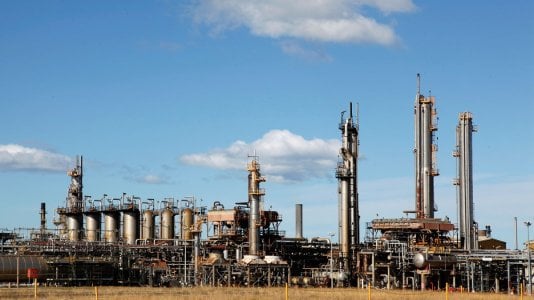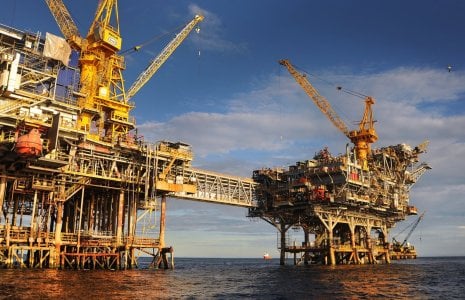Are your energy bills about to change? Here’s the inside scoop on the government's new gas deal with industry giants!
Governments and industries are now taking action to avoid higher energy costs for households and businesses.
In order to address the upcoming gas supply shortage, the Albanese government has signed a significant agreement with the largest producer of liquefied natural gas (LNG) on the east coast.
On Monday, January 22, Energy Minister Chris Bowen and Resources Minister Madeleine King announced new gas supply contracts of more than 260 petajoules—equivalent to 2½ years of gas-powered generation demand—up to 2033.
This gas will be sourced from the Bass Strait Project, operated by ExxonMobil’s local subsidiary, Esso, and part-owned by Woodside.
The project taps into the gas fields in the Gippsland Basin off the southeast coast of Victoria.
This move comes in response to warnings from regulators that consumers in Australia’s southern states could face gas shortages from 2028, which could send skyrocketing energy bills.
The Australian Competition and Consumer Commission (ACCC) said in its gas inquiry interim report released in December: ‘Transporting gas from Queensland to the southern states will be increasingly important to cover these potential supply gaps.’
If not addressed, a gas shortage could lead to blackouts, as gas-powered electricity generators may be unable to operate during peak demand periods and meet supply shortfalls.
This new deal aims to prevent such a scenario, ensuring a steady gas supply to the wholesale market, where power generators and energy distributors can purchase gas.
Lower wholesale prices should, in turn, result in lower energy bills for households and small businesses.
The agreement with Woodside and Esso marks the second round of exemptions under the government’s Mandatory Gas Market Code. This code, which came into force in July 2023, sets a price ceiling of $12 a gigajoule (GJ) to ensure certainty for the producers and wholesale users.
However, suppliers can exceed the cap, subject to ministerial approval, if they prioritise sending gas to Australia’s east coast market rather than abroad.
Mr Bowen stated: ‘The Albanese government’s gas code has now delivered commitments for gas supply that’s equivalent to what is needed for powering east coast gas power stations for five years.’
Further exemptions under the code to secure additional supply are also being assessed by the federal government.
However, the move has not been without criticism.
Opposition Energy Spokesman Ted O'Brien argued that the announcement was a concession by the federal government that the code of conduct was failing to boost supply.
‘What has proven to be the case is you can’t get gas flowing in this country unless you work outside of Labor’s own framework,’ he pointed out.
‘The only way you can get gas flowing in this country is if companies are given the opportunity to work outside of the policy framework Labor itself has put in place,’ Mr O’Brien added.
Despite the criticism, Ms King emphasised the importance of gas as 'insurance' for the energy grid.
She explained: ‘Gas is essential to supporting the nation’s energy grid, and the reliable supply of gas is crucial to keeping energy prices down for households and businesses.’
‘Gas is also indispensable in processing critical minerals and technologies such as wind turbines and solar panels,’ Ms King continued.
The ministers said the additional supply would directly feed into southern demand centres and ensure sufficient domestic supply to keep the downward pressure on gas prices.
So, what does this mean for you? In the short term, you may not notice any immediate changes.
However, in the long run, this deal could help keep your energy bills stable and ensure a reliable gas supply for your home and business.

What are your thoughts on this new gas deal? Do you think it will help to keep energy prices stable? Share your thoughts in the comments below.
In order to address the upcoming gas supply shortage, the Albanese government has signed a significant agreement with the largest producer of liquefied natural gas (LNG) on the east coast.
On Monday, January 22, Energy Minister Chris Bowen and Resources Minister Madeleine King announced new gas supply contracts of more than 260 petajoules—equivalent to 2½ years of gas-powered generation demand—up to 2033.
This gas will be sourced from the Bass Strait Project, operated by ExxonMobil’s local subsidiary, Esso, and part-owned by Woodside.
The project taps into the gas fields in the Gippsland Basin off the southeast coast of Victoria.
This move comes in response to warnings from regulators that consumers in Australia’s southern states could face gas shortages from 2028, which could send skyrocketing energy bills.
The Australian Competition and Consumer Commission (ACCC) said in its gas inquiry interim report released in December: ‘Transporting gas from Queensland to the southern states will be increasingly important to cover these potential supply gaps.’
If not addressed, a gas shortage could lead to blackouts, as gas-powered electricity generators may be unable to operate during peak demand periods and meet supply shortfalls.
This new deal aims to prevent such a scenario, ensuring a steady gas supply to the wholesale market, where power generators and energy distributors can purchase gas.
Lower wholesale prices should, in turn, result in lower energy bills for households and small businesses.
The agreement with Woodside and Esso marks the second round of exemptions under the government’s Mandatory Gas Market Code. This code, which came into force in July 2023, sets a price ceiling of $12 a gigajoule (GJ) to ensure certainty for the producers and wholesale users.
However, suppliers can exceed the cap, subject to ministerial approval, if they prioritise sending gas to Australia’s east coast market rather than abroad.
Mr Bowen stated: ‘The Albanese government’s gas code has now delivered commitments for gas supply that’s equivalent to what is needed for powering east coast gas power stations for five years.’
Further exemptions under the code to secure additional supply are also being assessed by the federal government.
However, the move has not been without criticism.
Opposition Energy Spokesman Ted O'Brien argued that the announcement was a concession by the federal government that the code of conduct was failing to boost supply.
‘What has proven to be the case is you can’t get gas flowing in this country unless you work outside of Labor’s own framework,’ he pointed out.
‘The only way you can get gas flowing in this country is if companies are given the opportunity to work outside of the policy framework Labor itself has put in place,’ Mr O’Brien added.
Despite the criticism, Ms King emphasised the importance of gas as 'insurance' for the energy grid.
She explained: ‘Gas is essential to supporting the nation’s energy grid, and the reliable supply of gas is crucial to keeping energy prices down for households and businesses.’
‘Gas is also indispensable in processing critical minerals and technologies such as wind turbines and solar panels,’ Ms King continued.
The ministers said the additional supply would directly feed into southern demand centres and ensure sufficient domestic supply to keep the downward pressure on gas prices.
So, what does this mean for you? In the short term, you may not notice any immediate changes.
However, in the long run, this deal could help keep your energy bills stable and ensure a reliable gas supply for your home and business.
Key Takeaways
- The Albanese government has signed new gas supply contracts with Esso and Woodside to address potential gas shortages and drive down prices.
- The agreement is for more than 260 petajoules of gas from the Bass Strait Project, which will help prevent energy supply gaps forecast to begin in 2028.
- This deal is the second set of exemptions under the Mandatory Gas Market Code, which sets a price ceiling but allows for ministerial exemptions if supply is prioritised to the Australian market.
- Energy Minister Chris Bowen emphasised that the secured gas supply will help reduce energy prices and support the reliability of Australia's energy grid as the country moves towards renewable generation.
What are your thoughts on this new gas deal? Do you think it will help to keep energy prices stable? Share your thoughts in the comments below.









